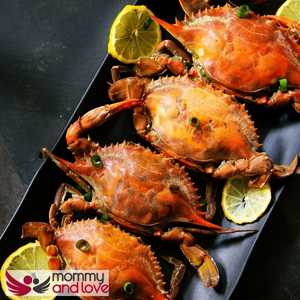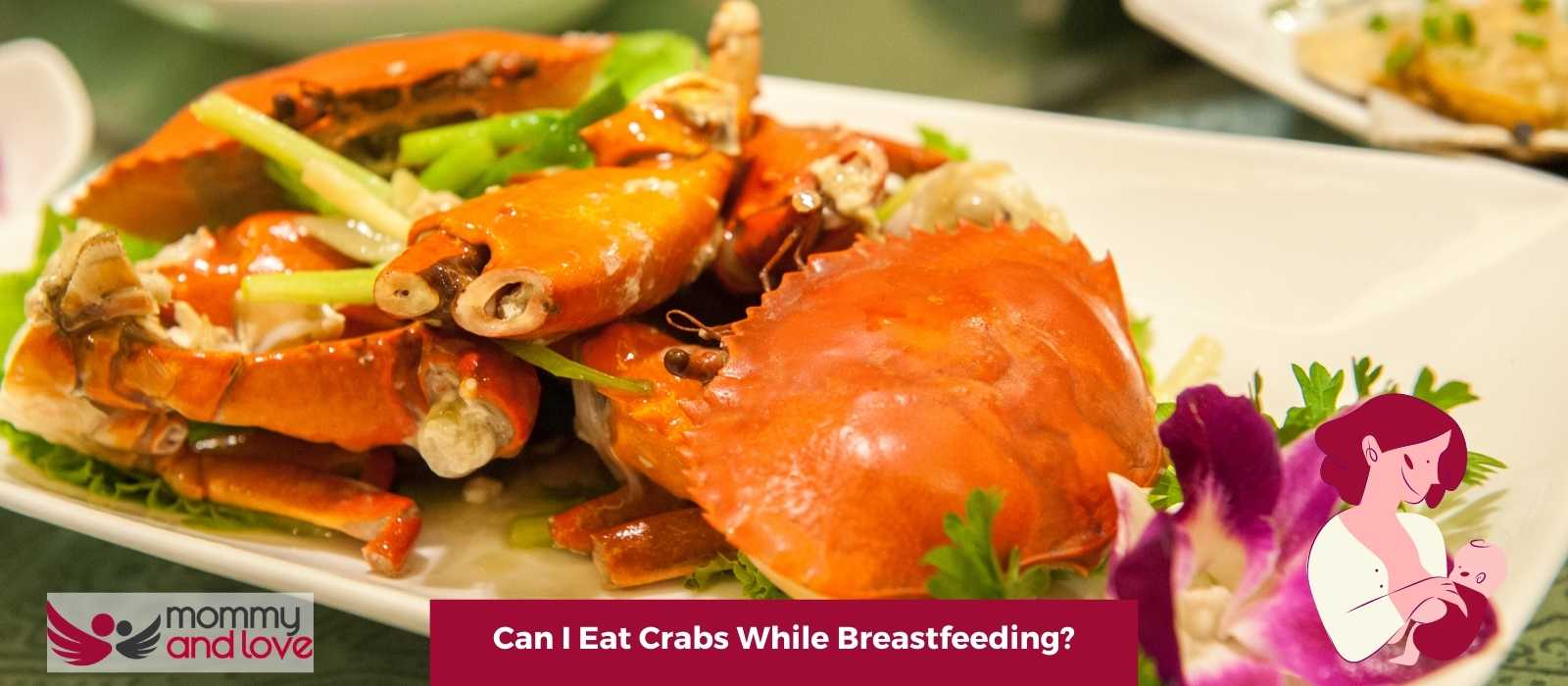Breastfeeding is important to both mother and baby, but it can be difficult when faced with new challenges. One of these challenges may include eating seafood such as crabs while breastfeeding.
It’s a common question among nursing mothers if they can eat crabs while breastfeeding. The answer is not as simple as yes or no. There are certain factors to consider before making the decision to eat crabs while breastfeeding.
Can I eat crabs whilst breastfeeding? Yes, you can eat crabs whilst breastfeeding as they are a good source of protein and other nutrients. However, you should avoid eating the guts or liver as these may contain toxins that could harm your baby. Crabs are a good source of protein, omega-3 fatty acids, and other nutrients, all of which are beneficial for both you and your baby. So, go ahead and enjoy a delicious crab feast whilst breastfeeding!
Are Crabs Healthy?

Some people believe that crabs are unhealthy because they are high in cholesterol. However, this is not the case. Crabs are actually a very healthy food choice!
The cholesterol in crabs is not the same as the cholesterol found in red meat. It has a different structure and is not linked to an increased risk of heart disease like red meat can be.
Crabs are also high in protein and low in fat content, making them an excellent source of lean protein!
What Are the Benefits if You Eat Crab While Breastfeeding?
The benefits of eating crabs while breastfeeding a baby are numerous. For starters, crabs are high in protein and omega-3 fatty acids. These nutrients which are essential to a baby’s nervous system development, combined with the low-calorie content of the meal, make it an excellent food for nursing mothers to consume.
Furthermore, crabs are a good source of choline which helps to promote healthy brain development in a baby. Lastly, they provide a rich source of vitamin B12 which is important for the production of breastmilk.
What Are the Potential Risks if You Eat Crab?

Crab has extremely low mercury than many other types of shellfish, but it can still be dangerous depending to your and your baby on how it is fished and prepared.
Brown crab flesh may also contain significant quantities of cadmium, which is dangerous if consumed in excess. Crab also contains a significant amount of salt.
Too much sodium can increase your chances of having a stroke, heart disease, high blood pressure, or congestive heart failure. Crab flesh has 45 mg of cholesterol per serving. Excessive cholesterol consumption can increase your risk of heart disease, heart attack, and stroke.
Another potential risk of eating shellfish is food poisoning. Food poisoning is pretty common in certain foods like shellfish because of bacteria and other microorganisms.
How Many Crabs Are Safe While Breastfeeding?
Those who are pregnant or breastfeeding should consume 8 to 12 ounces of low-mercury seafood such as crabs each week. So although you can safely enjoy your favorite shellfish foods, eat crab legs and other foods in moderation!
Can You Breastfeed After Eating Seafood?
When a mother consumes crabs, the mercury in the crabs can enter her breast milk. However, the benefits of nursing may outweigh the potential negative consequences of mercury exposure through breast milk. Consume a variety of shellfish, such as crabs. Check for seafood and fish advisories if you eat fish caught by family or friends.
How Long Does Seafood Stay In Breastmilk?
All foods can flow through a mother’s breast milk to your baby within four to six hours of consumption, but it might take as little as one hour or as long as 24 hours.
Does Eating Crabs Increase Breast Milk?
It is still unknown if you can expect an increase in nursing mom’s breast milk supply after you eat shellfish and other seafood products. However, anecdotal evidence suggests that crabs could potentially boost breast milk production based on testimonies from breastfeeding moms all over the internet.
Do Crabs Affect Breastfeeding?
Seafood such as crabs can be an important part of a healthy, well-balanced nursing diet since it provides nutrients that are beneficial for the health of both the breastfeeding parent and the infant. Fish has a high protein content and a low saturated fat content.
Can a Breastfed Baby Have A Shellfish Food Allergy to Crabs?
Shellfish are among the most common allergens, with the majority of shellfish food allergies occurring after eating crabs, squid, lobster and clams. Although a shellfish allergy can develop in adulthood, it’s still important to keep an eye out for signs of a possible shellfish food allergy reaction when introducing shellfish to your breastfed babies through breastmilk. And before you eat shellfish, consider your family history regarding allergies.
Take Away on Crabs for the Breastfeeding Mother
Crabs are a healthy shellfish choice for nursing mothers! They are high in protein and low in fat content, making them an excellent source of lean protein among shellfish. Additionally, crabs are a good source of choline which helps to promote healthy brain development in infants. Lastly, if you eat shellfish, they provide a rich source of vitamin B12 which is important for the production of breast milk.
Allergic reactions from seafood sources such as crabs are pretty common. So watch out for allergy symptoms such as trouble breathing, rash, hives, swelling and itchiness. Seek medical attention from a medical professional right away if you notice these baby’s symptoms.

This article was written by Sandra Baker – full time writer and the mother of four amazing kids (including twins!)
She’s also a breastfeeding counselor and has spent years helping new parents learn how to care for their children. When she’s not writing or caring for her children, Sandra likes to spend time reading and taking walks with her husband.




